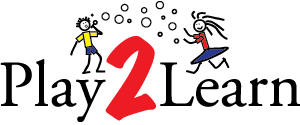Safe & Sound Protocol (SSP)
What is Safe & Sound Protocol (SSP)?
The Safe & Sound Protocol (SSP) is a research-based therapy showing significant results from five days of listening to specially processed (digitally filtered) music. Improvements are commonly seen in some or all of the following areas:
Social and emotional difficulties
Auditory sensitivities
Anxiety and trauma related challenges
Inattention
Speech and Language processing (receptive and expressive)
Stressors that impact social engagement
Sleep
The SSP is a way to calm or regulate the fight or flight reflex that we all experience. For some this reflex is hyper aroused causing the individual to feel unsafe in their everyday environments.
Developmental and Sensory processing differences can produce over-response. Past traumas or chronic stress can also produce over-response. SSP and “Polyvagal” theory which explain stress response and anxiety.
The SSP was written and refined over the past 20 years by Neuroscientist, Dr. Stephen Porges. The Processed Music (PSL) is computer altered vocal music designed to exaggerate the features of human prosody and designed to exercise the neural regulation of the middle ear muscles.
By exercising these muscles, children and adults who struggle to regulate their response to stress, emotions, or auditory information begin to sense safety and the ability to socially engage instead of withdraw from their environment.
How do you know if a child can benefit from listening therapy?
Children dealing with learning challenges can benefit from listening therapy. If a child is struggling with ADD, ADHD, developmental disability, or a number of other issues related to brain development, listening therapy is a beneficial therapy.
Listening programs have been noted to help kids with sensory processing disorders, autism, Down Syndrome, and kids who were born prematurely. Adding listening programs to pediatric therapy for those who have auditory processing needs, or speech and language deficits, brings therapy to a new level of effectiveness.
At Play2Learn in St. Louis, we have been able to obtain phenomenal results through pediatric listening therapy.
Parents: why we use listening programs
We feel our clients make quicker progress and make greater gains when combining listening with our pediatric therapy services. This program has helped so many of our clients succeed.
Through research and treatment strategies, we find that adding a listening program to a child’s life will help a child show improvements with learning challenges—specifically reading, writing, and cognitive skills.
Through listening to specific modulated classical music, new pathways are developed that help with concentration, memory, balance, and coordination skills.
Video on Safe & Sound Protocol
“We wanted to thank you so much for working with Evan and Jack this past year, providing months of consistent therapy. Your patience and expertise helped them develop physically, mentally, and emotionally. We can see a big difference in both of their skill levels. And they had so much fun doing their work! They both seem to be really enjoying kindergarten.”
— The W Family
“Thank you so much for all your wonderful help! It has been so awesome to see Austin gain more confidence and self esteem! We appreciate all that you do!”

